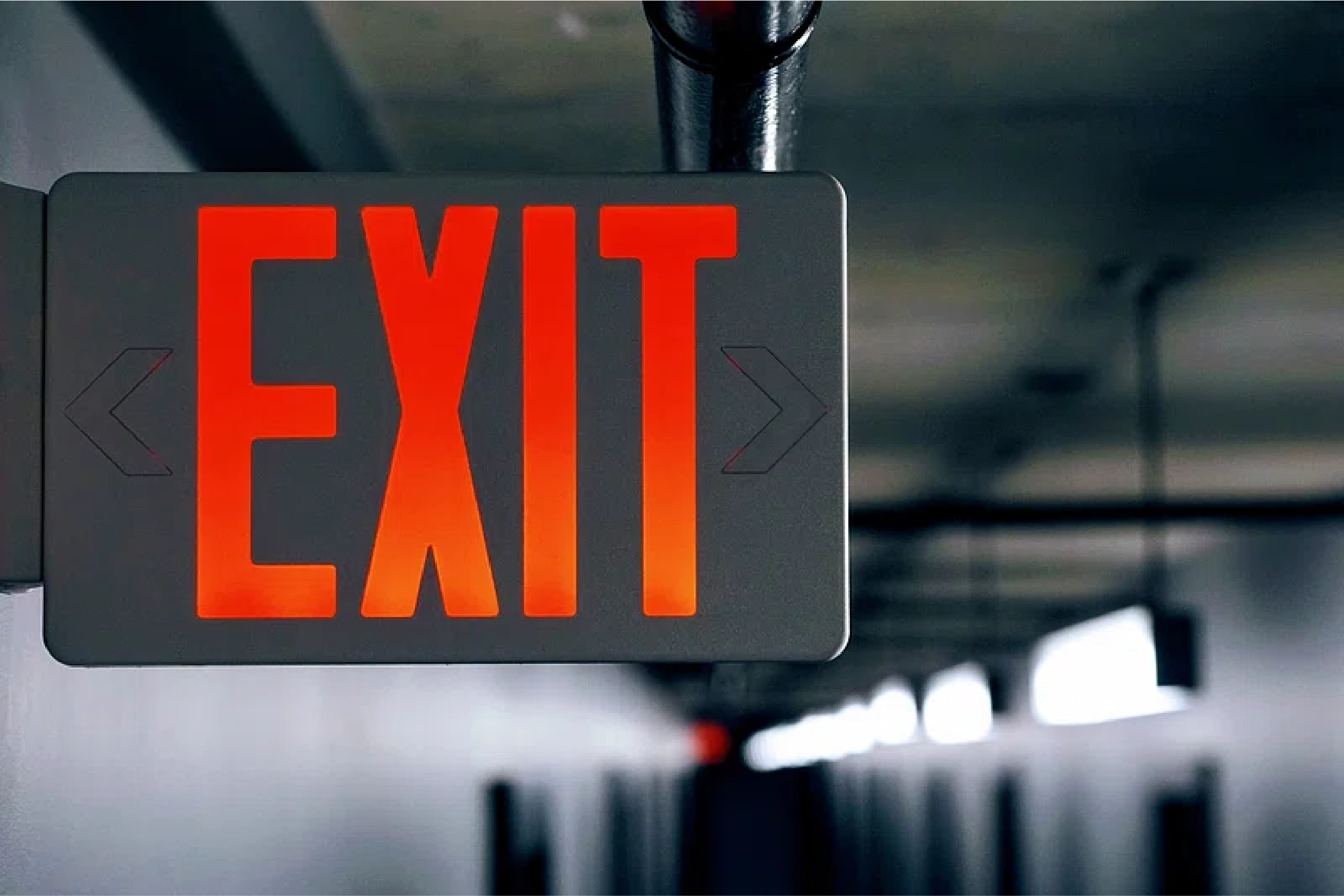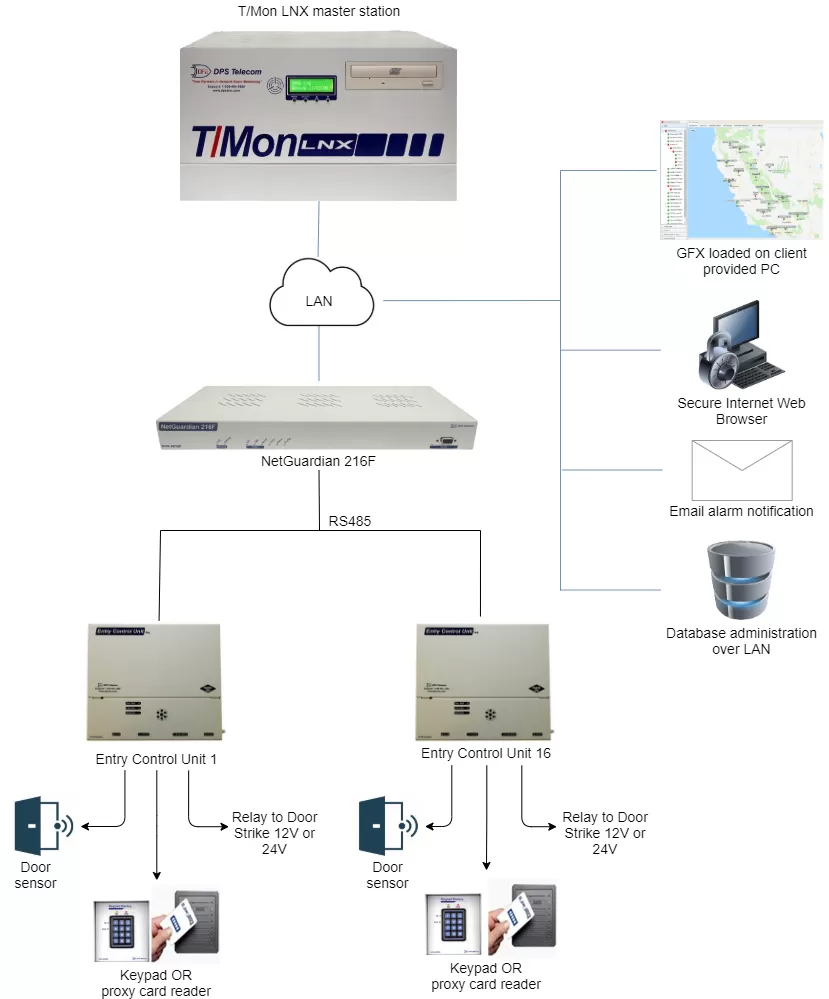Check out our White Paper Series!
A complete library of helpful advice and survival guides for every aspect of system monitoring and control.
1-800-693-0351
Have a specific question? Ask our team of expert engineers and get a specific answer!
Sign up for the next DPS Factory Training!

Whether you're new to our equipment or you've used it for years, DPS factory training is the best way to get more from your monitoring.
Reserve Your Seat TodayTwo of our engineers (Andrew and Bennie) recently gave an in-person demo for a client. The two answered questions and worked with the client to refine their emergency exit systems for public safety.
Andrew summarized the site visit interaction in the following way:
"This project is for a major rail transit agency, a long-time DPS client, experiencing an uptick in misuse of emergency exits at turnstiles. During rush hour, congestion leads exiting passengers to use emergency exits instead of waiting in line, which triggers a low-volume beep.
This creates an opportunity for fare evasion as riders enter through the emergency exit without paying. The problem is exacerbated by fire code requirements that prevent locking or significantly delaying these exits.
The proposed solution involves designing a system that allows remote commands to override the 15-second delay during emergencies, ensuring compliance and public safety."
Today, we'll look at the demo exchange to see how to find the best solution for enhancing emergency access. This exchange will also showcase our mission to ensure the reliability and security of your critical infrastructure.

The client team lead kicked off our meeting by reminding everyone on his team about the importance of this project.
He began his introductory speech by addressing the significant issue of fare evasion that the rail transit agency is currently grappling with. He mentioned that around 20-30 years ago, the emergency exits were "locked down," meaning they could only be opened using a staff button.
While this method effectively prevented fare evasion, it was not compliant with fire codes that demand easy and prompt access to emergency exits for passenger safety. This retrospective context set the stage for discussing modern, compliant solutions to mitigate fare evasion while maintaining safety standards.
"We need 4 NEMA mounting brackets per case."
"We will mount NEMA to 'Kindorf' rails that are mounted to the wall."
After addressing these preliminary concerns, our engineers were able to provide detailed explanations and practical demonstrations. This made sure that the client's requirements were understood and met. The collaborative approach allowed us to tailor our solutions for optimal integration into the client's existing infrastructure.
One key discussion point during the demo meeting was the need for easier replacement & maintenance procedures. In his visit notes, Andrew emphasized the importance of efficient processes for maintainers:
"Show the maintainers the process to remove DIN to replace (remove rails first) the pluggable strips (on DIN front panel) that save time during a swap."
Maintaining and replacing components quickly is crucial in high-stress environments. NetGuardian RTUs feature easy DIN-rail mounting. This feature simplifies installation and maintenance. The pluggable strips on the DIN front panel further expedite the install process.
The client pointed out the necessity for good response to occasionally unreliable network connections. In this case, the IP connection was via power wiring - the only way to avoid running conduit along some very prestigious & decorated station walls.
"Thread needle between fail-safe & fail-stupid."
To address communication disruptions while maintaining safety and fare compliance, we introduced a new custom control device. This device is designed to handle network connectivity issues smoothly.
If a communication failure occurs, the device will quietly unlock the emergency exits to uphold safety standards without drawing attention. This prevents fare evaders from exploiting the situation. Our approach secures emergency exits during normal operations and ensures they work effectively during emergencies, even if the network connection is unstable.

Real-time data analytics was established as a crucial requirement for the client. They specified their desired output measurement that would allow for an analysis of their system:
"4-20mA output will allow analytics."
In particular, they want reporting on how many network failures occur that cause the exits to (quietly) unlock. This type of data collection is generally handled in our T/Mon head-end server, which this client already has.
During the conversation, several design changes were discussed to tailor the solutions to the client's needs:
"Support for >=3 gates per NetGuardian"
"Distinct LED for communications loss"
"Discrete input to confirm the gate was unlocked (and not necessarily opened)"
Customization is key to meeting specific operational requirements. The NetGuardian G6 series offers flexible configuration options to support multiple gates. This new device would be a customized and highly specialized NetGuardian.
The device also provides distinct visual alerts for communication issues. The integration of discrete inputs allows for precise monitoring of gate statuses. This ensures that any irregularities are promptly detected and addressed.
Security was a major concern for the client. They were particularly worried about unauthorized access and the integrity of emergency exits:
"We need to add a 'CyberKey' cylinder (rechargeable key powers the cylinder's electronics) to NEMA."
The addition of CyberKey cylinders enhances security by providing electronic access control that can be easily managed and audited. This feature allows only authorized personnel to access critical areas.
This restricted access ensures the security and integrity of the system. Integrating CyberKey cylinders with NetGuardian RTUs enables detailed access logs and real-time monitoring of access events.
The client was looking to future-proof their operations with scalable solutions that could grow with their needs:
"If the project rolls out to all of our stations, the total volume could be well into the hundreds or even 1000+ units."
Scalability is a crucial consideration for large-scale deployments. NetGuardian RTUs are designed to be scalable and accommodate the addition of new units as needed.
This ensures that as the client's needs grow, the client's monitoring and control systems can expand without requiring a complete overhaul. The flexibility and scalability of the NetGuardian series make it an ideal choice for large, complex environments.
We take pride in delivering top-notch solutions that improve the reliability and security of your critical systems. Our expert engineers are ready to assist you with customized solutions that meet your specific needs.
Whether you're looking to upgrade your monitoring systems, enhance your security, or ensure compliance with industry standards, we're here to help. There are plenty of off-the-shelf NetGuardians available. As you've read, we're also happy to customize devices when you have very specific requirements.
Contact us today. Call 1-800-622-3314 or email sales@dpstele.com to experience the DPS Telecom difference!

Andrew Erickson
Andrew Erickson is an Application Engineer at DPS Telecom, a manufacturer of semi-custom remote alarm monitoring systems based in Fresno, California. Andrew brings more than 19 years of experience building site monitoring solutions, developing intuitive user interfaces and documentation, and opt...